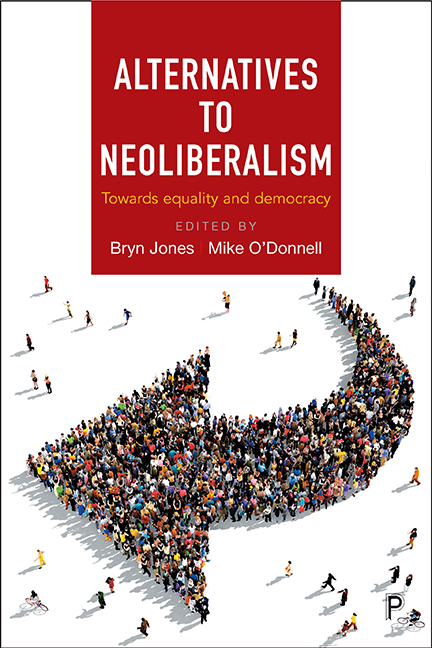Book contents
- Frontmatter
- Dedication
- Contents
- List of figures, tables and boxes
- List of abbreviations
- Notes on contributors
- Acknowledgements
- Foreword
- Editors’ preface
- Introduction: The open-market society and its opponents: an overview
- Part One Alternative paradigms and perspectives
- Part Two Reform within economic and governance restraints: pushing the boundaries
- Part Three Economic and political democracy: restoring the market-civil society balance
- Conclusion: A Brexit from neoliberalism?
- Index
twelve - Turning the tide: a role for social movements
Published online by Cambridge University Press: 05 April 2022
- Frontmatter
- Dedication
- Contents
- List of figures, tables and boxes
- List of abbreviations
- Notes on contributors
- Acknowledgements
- Foreword
- Editors’ preface
- Introduction: The open-market society and its opponents: an overview
- Part One Alternative paradigms and perspectives
- Part Two Reform within economic and governance restraints: pushing the boundaries
- Part Three Economic and political democracy: restoring the market-civil society balance
- Conclusion: A Brexit from neoliberalism?
- Index
Summary
The Introduction to this book emphasised that the adoption of a few disparate policy alternatives will not shift the dominant neoliberal paradigm. Nor can displacement be achieved by a Damascene conversion of a handful of senior politicians and policy makers. Nor, we must concede, solely by illuminating ideas and prescriptions from academics and commentators. Historically, shifts of the sociopolitical consensus ‘at the top’ have involved the intermeshing of all of these actors with the aims and beliefs of broader social movements. Social movement can be defined as groups of people pursuing a shared cause or grievance requiring some social change and/or material or other gain. Activists may be closely or loosely organised – typically these days via the Web.
The rise of classical liberalism in the 19th century was propelled by the ideas and manifestos of campaigns by movements such as Chartism, Free Trade and anti-slavery. More recently, principles of the Keynesian‒social democratic paradigm, which defined the policies and institutions making up the welfare state, were seeded, debated and promoted through the labour movement. Even the political acceptability of some of today's progressive causes, such as environmental responsibility, women's rights and anti-discriminatory practice can be tracked back to the so-called ‘new social movements’ stemming from the cultural ferment of the 1960s.
So what, if anything can the social movements of the early 21st century contribute towards alternative politics and economics to replace neoliberalism? To answer this question we briefly survey the tenor and aims of the most potent or influential, contemporary social movements. This account, in turn, presupposes a short history of their development. After these assessments we evaluate the transformative potential of relevant social movements with particular reference to their interactions with the political sphere. Some social movements have, for decades, been combining a critique of neoliberalism's globalisation dimension, with concrete proposals and attempts to develop alternatives. After 2008, and with the partial collapse of the globalisation hubris, some of these ideas and the activists promoting them have been devolving towards national issues and problems.
Distinctiveness and origins
The Occupy and Indignados activities of 2011 in the Western world were not simply expressions of protest. They also rechannelled ideas and practices from earlier anti and ‘alter’ globalisation campaigns back to formerly affluent metropolitan economies.
- Type
- Chapter
- Information
- Alternatives to NeoliberalismTowards Equality and Democracy, pp. 227 - 244Publisher: Bristol University PressPrint publication year: 2017



